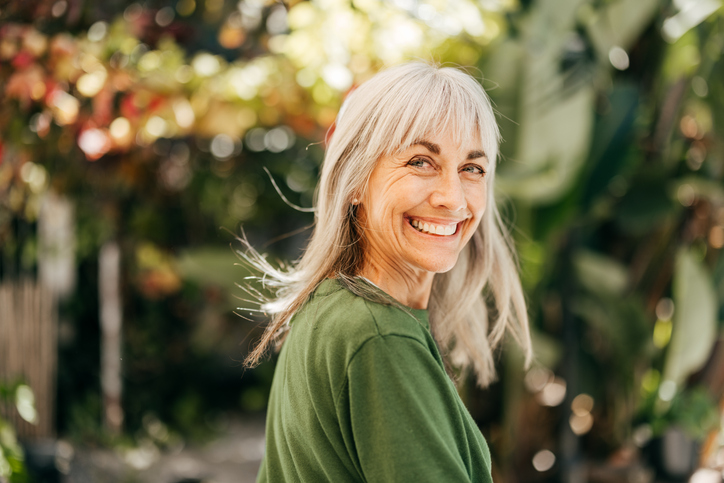An Alzheimer’s diagnosis is life-changing. While there’s still no cure to stop the disease’s progression, many people find strength and direction by hearing how others move forward.
Denis Lowe, Betsy Groves, and Rebecca Chopp each responded to their diagnoses in their own way: through podcasting, painting, and advocacy. And they all share one important message. Life doesn’t end with an Alzheimer’s diagnosis.
Denis Lowe: Designing a life around Alzheimer’s
As an interior designer, Denis Lowe was used to multitasking, reading complex text, and presenting his design ideas to clients. Rather than developing problems with memory, Lowe began having trouble at work and started noticing personality changes.
He retired from work because of his symptoms, and at age 65, doctors diagnosed him with early-onset Alzheimer’s disease. Lowe wanted to support others going through the same experience. He became involved with multiple support and advocacy organizations and now co-hosts a podcast called “Living Our Best with Memory Loss.”
In addition to his advocacy work, Lowe enjoys reading, walking, and riding his motorcycle, and emphasizes the importance of maintaining a positive outlook.
“For anybody I would meet for the first time, newly diagnosed, I would tell them, do all you can to avoid depression,” Lowe told Being Patient.
Betsy Groves: Speaking openly about a diagnosis
In her 60s, Betsy Groves started having trouble remembering names. The former clinical social worker, who also taught courses at Harvard’s Graduate School of Education, thought it was a normal part of aging.
A friend advised her to get a cognitive evaluation, which suggested she may have Alzheimer’s. In 2021, at age 72, a cerebrospinal fluid test confirmed the diagnosis.
“Because I’m a social worker and I’ve always been an advocate, I didn’t want to be shy about talking about this,” Groves said. “I ended up, along with my granddaughter, on the front page of The Boston Globe.”
Groves continues to work with advocacy groups to bring attention to early-stage dementia. To stay physically and mentally healthy, Groves walks every day and sees her granddaughters regularly.
Rebecca Chopp: Accepting Alzheimer’s without losing yourself
Before her diagnosis in 2019, Rebecca Chopp was a university chancellor and a published author. After the shock of the diagnosis, she found calm and a fresh sense of purpose in advocacy and new creative outlets.
Chopp began painting, joined book clubs, and spent more time with loved ones, her dog included. She also sought new bonds, with people on the same journey: She co-founded the advocacy group Voices of Alzheimer’s and became involved with the Alzheimer’s Association.
“When you’re faced with this life-altering news, one of the things you can do is decide that everything’s going to be an opportunity, an invitation, a way to step forward,” she said in an interview. “My goal every day is to live in awe.”
Despite the challenges, Lowe, Groves, and Chopp show that it’s possible to live a full, meaningful life after an Alzheimer’s diagnosis. Their common thread: staying active, connected, and engaged.













